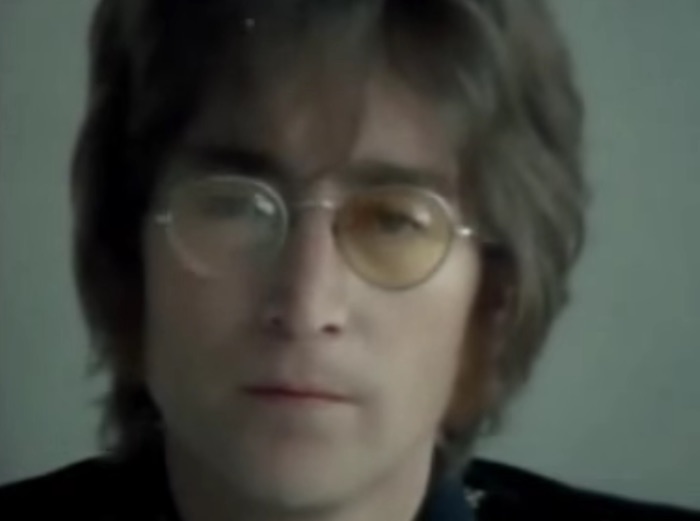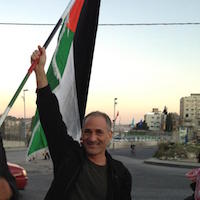December 8, 1980 was a day that marked many lives, including that of one 15-year-old Upper-West-Sider who heard the news on arriving home after having passed right in front of the Dakota a mere 24 blocks away.
Ever since my kindergarten teacher took me to see The Yellow Submarine when it first came out in 1968, the Beatles were a part of my psyche. And, as soon as I was old enough to appreciate him, John was my Beatle.
One of the few figures in my youth I could truly call a hero, John Lennon was mortal and flawed, but brilliant and merciless in his pursuit of truth and what is right. So much of what is wrong with the world today he was calling out back then in words that still ring out in their lucidity. But more importantly, he was able to take his expression of truth beyond mere opinion to the level of transcendent vision.
An already music-obsessed teenager, I made a pledge that day to devote my life to music as a means of effecting social change. I saw clearly that music bypassed the head and went straight to the gut, affecting people much more powerfully than reasoned argument. Now, all these years later, after having knocked my head against the wall trying to combat ignorance and prejudice with fact, reason and simple human ethics, this seems truer than ever.
To see this inherent power of medium over message, we need only look at what may well be John’s most famous yet least understood song: Imagine.
The way the song is set up it looks like John is asking us to imagine something that doesn’t exist. To imagine there’s no Heaven or Hell is to imagine that our lives are not lived in the shadow of a future judgment. Instead he asks us to imagine, a world in which people live the immediate reality of their senses (“Above us only sky”) and the present (“for today”). This is not, in other words, an appeal to imagine a world that doesn’t exist, but to stop living in an imagined world and start living reality.
Like Heaven and Hell, countries exist only in our minds, yet we kill or die for them. Religion too is made up (imagined) by us—yet another institution that serves only to divide humans and prevent them from living life in peace. Neither are possessions real, except as a shared idea of ownership projected onto things, in turn producing yet more suffering as greed begets hunger.
When enough of us finally awaken to the fact that all of these things—religion, country, possessions—are nothing more than ideas in our minds, a world of unity, a brotherhood of man, with all the people sharing all the world, becomes possible. This may look like a dream, yet what is our current social reality but a collective delusion—a “reality” that only exists because enough people believe it? When enough “dreamers” actually see through the dream, a critical mass (what today we would call a “tipping point”) is reached “and the world live be as one.”
Lennon was a master of irony and here he doesn’t disappoint. Even as he asks us to “imagine,” what he is really saying is that we already live in an imagined world; he is inviting us, in fact, to stop imagining. When enough of us awaken to the true nature of the collectively held concepts and ideas we call “reality” and re-embrace life in its immediacy and simplicity, peace, unity and justice will come about of themselves. And it is not a physical change of institutions that will bring about true change (but that’s another song), but rather a change within that must happen to each of us individually.
Awaken from delusion, abandon all concepts, turn off your mind…these are the real exhortations hidden in the words of Imagine. Surely many who love this song have no idea what it’s actually saying, yet they are emotionally affected by it. Beyond the verbal message, that we can rationally analyze and discuss, it creates a space in which one can actually feel that unity, peace and a new world are possible—and want to be a part of making them happen.
This is the power of music and all true art: it short-circuits the mind and penetrates our soma. It makes us feel a message that we may not grasp—or even agree with—intellectually. It doesn’t seek to convince, but disposes us to embrace a deeper feeling, a feeling from which perhaps will emerge flowerlike a more articulated yet grounded understanding of the message.
That December night, so many of us spontaneously headed for 72nd Street and Central Park West to pay our respects to a fallen warrior of peace, who was able to put into words—and beyond words—deeper truths that we felt but could not communicate so eloquently. We were there not simply to mourn the loss of a man we respected and felt we knew as a friend, but of a voice for the better world we could sense hiding just beneath the filthy veneer of the present one.
This was a moment that would reverberate throughout our lives: in the brief glimmer of brotherhood that followed 9/11, in the vast demonstrations that preceded the Iraq Invasion, in the midnight tears that greeted the news that Barack Obama had won the Presidency, in the brief transformation of Zuccotti Park into Liberty Park. It is a moment we carry in our bones and which those of us who were there—physically or vicariously—if we somehow manage not to destroy ourselves and a new world emerges from the sickness and chaos that currently surrounds us, John Lennon will be remembered as one of its prophets.
Relephant Favorite:
Remembering John Lennon in his Own Words.
Bonus video:
~
Author: Peter Cohen
Editor: Travis May
Image: Video Still












Read 6 comments and reply